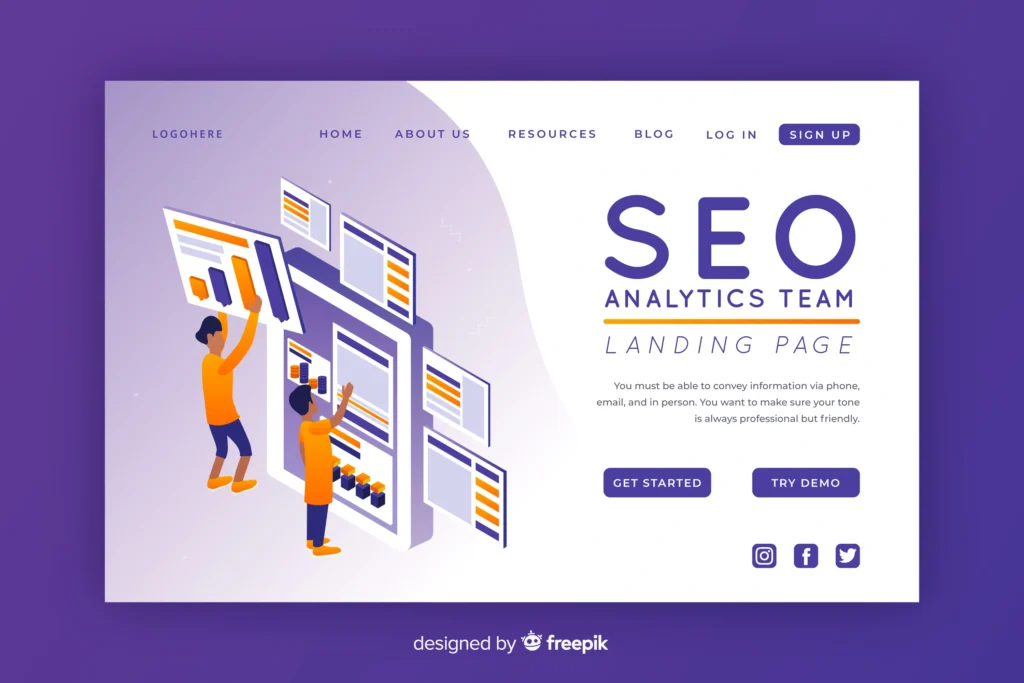10 SEO Myths to Avoid Falling For in 2025
Search engines are a great way to boost your rankings. But wrong information confuses people who are trying to do it right. Knowing differences between SEO myths and facts is critical to avoid wasting time. This blog clarifies some common myths and tells you what will work for your website.
MYTH 1: SEO Is Dead
Fact: As long as search engines like Google are alive, people will continue using this method to boost their presence online. Even though the algorithms may change in the future, SEO will endure as it aims to get better reach, and traffic stays the same.
Modern SEO is all about understanding users’ search intent, having quality content on your website, and ensuring your website works well across platforms. In short, instead of fading away, SEO is just changing with time. It’s among the major SEO myths to avoid falling for.
MYTH 2: Keyword Stuffing Boosts Rankings
Fact: Stuffing too many keywords in your content can hurt your ranking. Search engines like Google prefer websites with content that sounds natural and is helpful to the audience.
A good SEO always includes using keywords in a relatable and sensible manner. Use keywords thoroughly to make your content more engaging and relevant for your audience.
MYTH 3: More Backlinks Mean Better Rankings
Fact: Search engines prefer quality over quantity in the case of backlinks. One high-quality link from a reputable website gives more authority than several low-quality links. Google looks at the credibility of the websites you link to.
Many experts in this field earn high-quality backlinks by delivering valuable content and building genuine relationships. It’s another of the famous SEO myths to avoid falling for.
MYTH 4: Social Media Directly Boost Your SEO Rankings
Fact: Social media won’t directly affect your website’s rankings. When you share compelling content on social media, chances are high that people will see it and visit your website.
And if people start liking your content, other websites may link to it. It can, therefore, boost your rankings. Being active on social media helps more people find your business.
MYTH 5: Duplicate Content Leads to Penalties
Fact: Using duplicate content on your website doesn’t always mean that Google will punish you. But it confuses search engines about which version is original and which to show in search results. So tt becomes harder for people to find your website. So, it’s best to have original content as it helps maintain trust and clarity in search results.
MYTH 6: SEO Is a Finite Task
Fact: SEO isn’t something you do once and forget about. Search engines like Google change their ranking criteria and algorithms regularly. Plus, user behavior and market trends also change periodically.
To keep your performance consistent on search results, you must regularly update your content, monitor the site’s performance, and be ready to craft new plans and strategies as things evolve. It’s an ongoing process to ensure success.
MYTH 7: Meta Tags No Longer Matter
Fact: Meta tags are still important for your website. Meta titles and tags are short titles and descriptions on your page in the SERPs. It can notably affect how your pages appear on search results and can notably boost your website’s traffic and visitors. So, create engaging and relevant meta tags to grow your reach.
MYTH 8: SEO Assures Immediate Results
Fact: Improving your website’s ranking through SEO will take time. Even though you see some small changes at first, more bigger and noticeable changes usually takes time. You must be patient and work consistently to reach your goal and be successful through SEO. Remember that SEO is a long game and not a quick fix.
MYTH 9: Paid Search Improves Organic Rankings
Paid advertising won’t automatically make your website rank higher on regular search results. Running paid ads boosts the chances of your website getting more reach and traffic. It can increase your website’s popularity, encouraging other sites to link to it. It’s how paid advertising can indirectly boost your search engine rankings.
MYTH 10: SEO Is All About Rankings
Fact: SEO is about a lot more than just rankings. It’s about bringing the right audience to your website. It includes people interested in the products and services you offer. Focusing on rankings is vital, but it can also lead to overlooking other key aspects that help you succeed online.
Why Do SEO Myths Exist?
There are many reasons why such myths still prevail online. It includes:
Algorithm Complexity
Google and other search engines use complex algorithms which lack transparency. Since no one knows how it works, people start making speculations that sometimes turn into wrong facts.
Outdated Information
Search engines change every time. What worked previously might not work now. But people keep spreading wrong information and advice that won’t work. It’s one significant factor why SEO myths still exist.
Misinterpretation
Misunderstanding SEO techniques is another key reason. Sometimes, people hear about an SEO idea but don’t fully understand it. As they explain this idea to others, it gets twisted and thus becomes a myth.
Quick Fix Mentality
Almost everyone wants to see their website jump to the top quickly nowadays. It makes people believe in simple, rapid tricks that promise instant success. SEO, on the other hand, is a lengthy process that doesn’t provide instant success.
Conclusion
Search engine is a field that is evolving and demands careful monitoring and flexibility. It includes checking what is real and what is not. This will boost your website’s reach and performance. So stay updated and keep making quality content. Remember it grows with time and is not a quick solution.
FAQs
Q1. What is the 80/20 rule in SEO?
It is also known as Pareto Principle and suggests that 80% of your traffic comes from 20% of your pages and keywords. So focus on these elements to perform better.
Q2. What is the biggest challenge in SEO?
The biggest challenges in SEO are AI-powered search results and no-click searches. It reduces traffic by providing direct answers. So, update your site for both searches.
Q3. Why is SEO so difficult?
It is tough due to changing algorithms, intense competition, and the demand for quality content. So stay updated and refine strategies to ensure success.
Q4. What is SEO abuse?
It refers to using unfair techniques such as keyword stuffing, cloaking, and parasite SEO. All this violates search engine guidelines and can lead to penalties.
Also Read:












